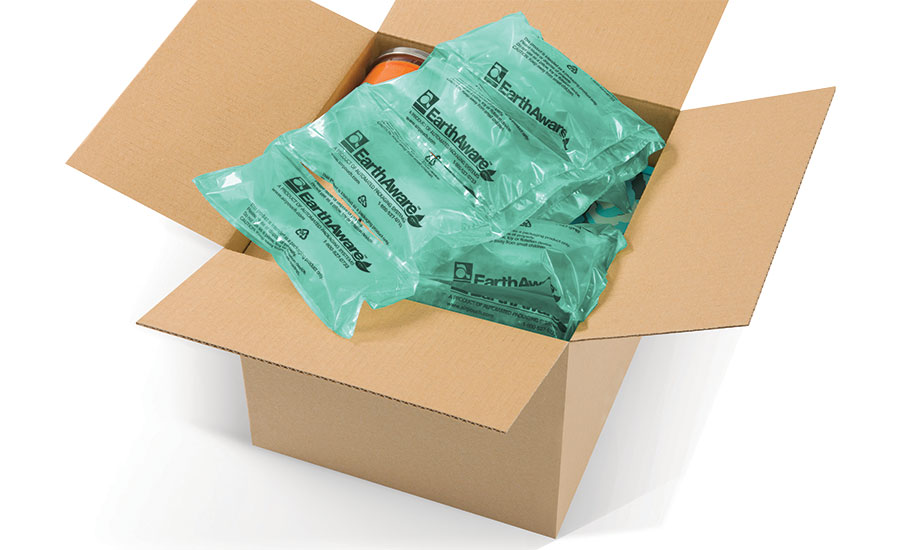As a small business owner, one of the most significant decisions you’ll make is how to package your products. Traditional packaging materials like glass bottles, rigid plastic containers, and metal tins have long been the go-to options for businesses looking to secure and present their goods.
However, a growing number of small businesses are turning to flexible pouches as a modern, sustainable, and cost-effective alternative.
But why exactly are so many businesses making the switch?
Let’s dive into the top reasons why flexible pouches are becoming the preferred packaging choice for small businesses.
1. Cost-Effectiveness: Stretch Your Dollar Further
Traditional packaging such as glass bottles, metal cans, or rigid plastic containers can be expensive, not only to produce but also to ship.
With heavier weight and bulkier shapes, these packaging materials increase shipping costs and contribute to higher production expenses.
Flexible pouches, on the other hand, are lightweight and take up less space.
This results in lower shipping costs and reduced material costs, making them an attractive option for small businesses looking to save on packaging without compromising on quality.
- Cost Breakdown: Flexible pouches are often 30-50% less expensive than rigid packaging options due to their material efficiency and reduced shipping costs.
- Bulk Savings: Because flexible pouches are compact and light, businesses can store and ship more units per pallet or box, increasing inventory capacity and overall cost savings.
2. Space Efficiency: Maximize Storage and Shipping
When it comes to storage and logistics, flexible pouches are a game changer.
They can be stored flat, unlike bulky containers or bottles that take up a lot of shelf space.
Whether you’re storing inventory in a warehouse or preparing for shipping, flexible pouches make organization simpler and more efficient.
- Reduced Footprint: Flexible pouches take up to 60% less space compared to traditional packaging, allowing small businesses to maximize storage in warehouses or retail spaces.
- Easy Shipping: Their compact size means businesses can ship more products at once, saving money on freight and improving delivery efficiency.
3. Sustainability: Eco-Friendly Packaging Choice
Environmental sustainability is more important than ever.
Consumers today are increasingly demanding eco-friendly packaging options, and many small businesses are eager to meet this demand by reducing their carbon footprint.
Flexible pouches can offer a more sustainable option compared to traditional materials like glass or plastic.
- Less Material Waste: Flexible pouches require fewer raw materials to produce and generate less waste during production, compared to the heavy-duty materials needed for rigid packaging.
- Recyclable & Compostable Options: Many flexible pouches are made from recyclable or compostable materials, making them a more environmentally responsible choice for businesses looking to reduce their impact on the planet.
4. Product Protection: Keep It Fresh and Secure
One of the most important factors in packaging is product protection.
Flexible pouches offer excellent protection against external elements such as air, moisture, and light—preserving the freshness, flavor, and quality of your products.
- Barrier Properties: Great for snacks like granola, flexible pouches can be fitted with advanced barrier films that protect contents from oxygen, UV rays, and moisture, keeping products fresher for longer.
- Sealing Options: From resealable zippers to tear notches, flexible pouches can provide various sealing mechanisms that allow customers to easily open and reseal the product, extending its shelf life after opening.
5. Branding Opportunities: Stand Out with Customization
Packaging plays a crucial role in brand identity. It’s the first thing customers see, and it can heavily influence buying decisions.
Flexible pouches offer greater design flexibility, allowing small businesses to get creative with how they present their products.
- Custom Printing: Flexible pouches can be printed with full-color designs, eye-catching graphics, and logos, offering an impactful way to showcase your brand. Businesses can easily design pouches that stand out on the shelf and communicate their brand’s personality.
- Variety of Shapes & Sizes: Flexible pouches come in many shapes, sizes, and finishes (matte, glossy, etc.), providing more options for businesses to tailor their packaging to their specific needs and product types.
6. Consumer Convenience: Easy to Use and Store
Consumers value convenience, and packaging can make a huge difference in their experience with your product.
Flexible pouches can be easier for customers to open, close, and store, which adds to the overall user experience.
- Portability: Flexible pouches are lightweight and easy to carry, making them a great option for on-the-go products, such as snacks or beverages. They’re also great for single-use or portion-controlled products.
- Space-Saving for Consumers: After use, flexible pouches are easy to store, often requiring less space in the home compared to bulky containers or jars.
7. Innovative Features: Adding Value with Functional Design
Flexible pouches are no longer just simple bags—they are evolving to meet the functional needs of consumers and businesses alike.
Many small businesses are adopting innovative features that increase the utility of their products and enhance the packaging’s appeal.
- Spout Pouches: Spout pouches are perfect for liquids or semi-liquids and allow for easy pouring or dispensing. This feature is popular in industries like beverages, baby food, and condiments.
- Stand-Up Pouches: Stand-up pouches have become increasingly popular because they can stand on shelves, offering great visibility while still maintaining a sleek, modern look. They’re perfect for items like coffee, snacks, and pet food.
- Tear Notches & Zippers: Flexible pouches often come with features like tear notches for easy opening and resealable zippers for added convenience, making them more user-friendly than traditional containers.
8. Flexibility for Small Batches and Quick Changes
Small businesses often face the challenge of limited production runs and the need for quick packaging changes as demand shifts or new products are introduced.
Traditional packaging materials are often difficult and costly to modify for smaller batches, while flexible pouches are much more adaptable.
- Shorter Lead Times: Flexible pouch manufacturers typically have quicker turnaround times, allowing small businesses to get products to market faster.
- Easier to Test New Designs: Small businesses can more easily test different designs or limited-edition packaging options with flexible pouches, as they’re often less expensive and time-consuming to produce than traditional packaging.
9. Better Shelf Life: Extend Product Freshness
For businesses in industries like food, beverages, or beauty, preserving product freshness is crucial.
Flexible pouches are designed to extend shelf life, which can benefit both your customers and your bottom line.
- Improved Shelf Stability: Many flexible pouches incorporate food-grade barrier materials that ensure freshness by protecting products from environmental factors like light, oxygen, and moisture.
- Custom Fit for Product Types: Flexible pouches can be tailored to fit specific product types, ensuring a snug and secure fit that reduces the risk of spoilage and damage during transportation.
10. Market Trend Alignment: Meeting Consumer Demand for Sustainability
As consumer preferences continue to evolve, more and more people are becoming conscious of sustainable packaging.
By switching to flexible pouches, small businesses can align themselves with these trends, showing that they care about the environment and are making conscious efforts to reduce their ecological impact.
- Eco-Friendly Materials: Many flexible pouch options are made from biodegradable or recyclable materials, which are increasingly being preferred by environmentally conscious consumers.
- Sustainability as a Selling Point: Being able to advertise the sustainable nature of your packaging can become a strong selling point that resonates with consumers who prioritize eco-friendly practices in their purchasing decisions.
Conclusion: Flexible Pouches—The Future of Small Business Packaging
The advantages of flexible pouches are clear—they’re cost-effective, eco-friendly, customizable, and practical. Small businesses are increasingly opting for these packaging solutions to meet both consumer demand and operational goals.
When you choose flexible pouches, you not only lower packaging costs but also position your brand as modern, eco-conscious, and responsive to market needs.
If you’re still using traditional packaging, it might be time to reconsider your approach. Flexible pouches could be the key to streamlining your packaging process, improving customer satisfaction, and gaining a competitive edge in a crowded marketplace.

Melody Roth, a seasoned blog writer with a passion for the delectable world of food, specializes in crafting mouth-watering articles on favorites like pizza and burgers. With years of experience under her belt, Melody serves up stories as tantalizing as the dishes she describes, making her an invaluable voice in the culinary blogging realm.

